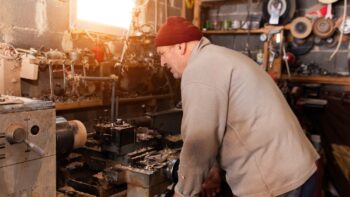
If you like fixing things yourself or tackling DIY projects, having the right tools makes everything easier. Whether you’re hanging pictures, assembling furniture, or making small repairs, a well-stocked toolbox can save you time and money.
The best part? If you already own the essential tools, you won’t have to budget for them every time you take on a new project. Instead of spending hundreds on last-minute tool purchases, you can put that money toward materials and upgrades. Let’s go over the must-have tools for homeowners—and a few that you can skip.
Basic Hand Tools for Everyday Fixes
Even if you’re not a hardcore DIYer, you’ll need some basic hand tools for simple household tasks. These are the go-to items for hanging shelves, tightening screws, or fixing a wobbly chair.
Must-Have Hand Tools:
- Hammer – Perfect for hanging pictures, assembling furniture, or removing nails.
- Screwdrivers (Flathead & Phillips) – Essential for almost any repair or installation.
- Adjustable wrench – Tightens or loosens nuts and bolts of different sizes.
- Pliers (Needle-nose & Standard) – Great for gripping, bending, and cutting wires.
- Tape measure – Ensures accuracy when measuring for furniture, curtains, or renovations.
- Utility knife – Ideal for opening boxes, trimming materials, and making precise cuts.
- Level – Keeps shelves, frames, and DIY projects perfectly straight.
These tools don’t take up much space and can handle 90% of the small jobs around your home.
Power Tools That Make DIY Projects Easier
If you enjoy DIY projects, a few power tools can save you time and effort. While they cost more than hand tools, they quickly pay for themselves if you use them often.
Useful Power Tools for Homeowners:
- Cordless drill – A must-have for assembling furniture, installing shelves, or making quick repairs.
- Power screwdriver – Speeds up jobs that require a lot of screws, like building decks or cabinets.
- Circular saw – Cuts wood, plywood, and other materials for home improvement projects.
- Stud finder – Helps locate wall studs before mounting TVs or shelves.
- Shop vacuum – Cleans up sawdust, debris, and wet messes better than a regular vacuum.
If you’re planning to take on big DIY projects, these tools can save you hours of work and make your projects look more professional.
Tools Homeowners Can Skip or Rent Instead
Not every tool is worth buying. Some are expensive, bulky, or rarely used—so renting or borrowing them makes more sense.
Tools You Probably Don’t Need to Own:
- Tile saw – Only useful for big tiling jobs. Renting one is cheaper than storing it.
- Jackhammer – You’ll likely only need this once, and rentals are easy to find.
- Scaffolding – Unless you’re painting houses for a living, a ladder does the job.
- Post-hole digger – Perfect for fences, but not something you’ll use often.
- Paint sprayer – Looks cool, but brushes and rollers work just fine for most people.
If you ever need these tools, check a local hardware store or tool rental service instead of buying them outright.
Storage and Maintenance Tips for Your Tools
Once you’ve got your essential tools, keeping them in good shape will make them last longer. Proper storage also makes it easier to find what you need when you need it.
How to Store and Care for Your Tools:
- Use a toolbox or pegboard – Keeps tools organized and easy to access.
- Keep tools dry – Moisture causes rust, so store them in a dry place.
- Sharpen blades when needed – A dull saw or knife won’t cut properly.
- Check power tools regularly – Make sure cords and batteries are in good shape.
With a solid set of tools, you’ll be ready for anything—without overspending or filling your garage with stuff you don’t need. By investing in the essentials and renting the rest, you can tackle home improvement projects confidently and affordably.



